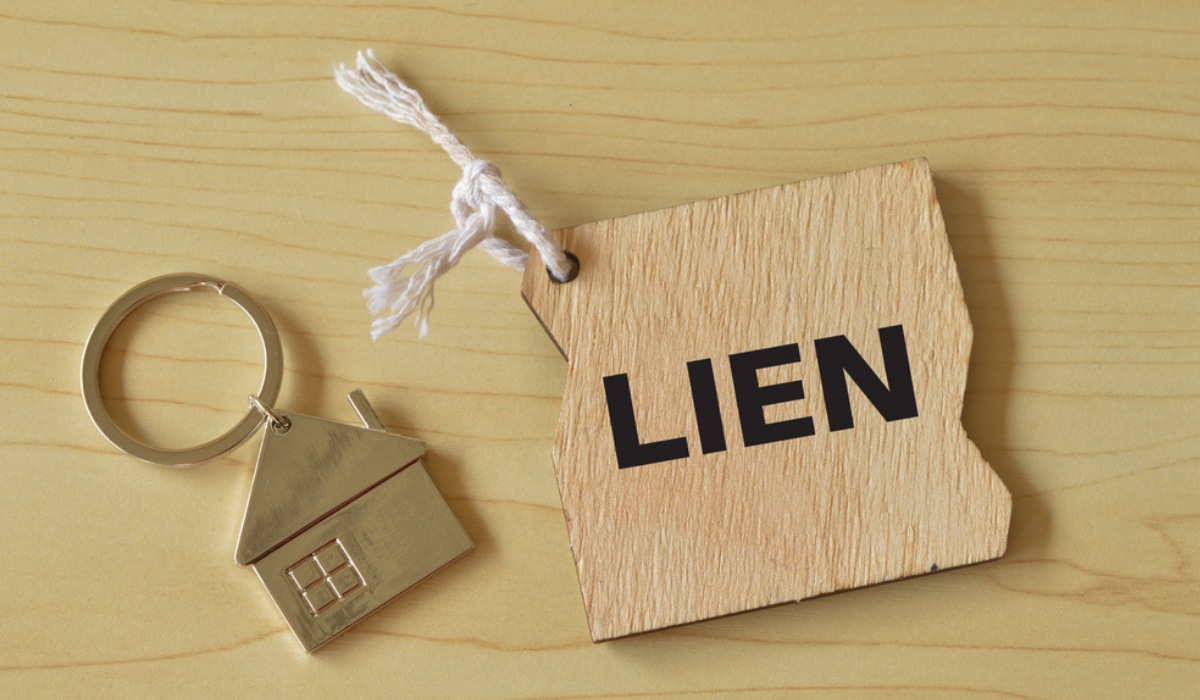
Welcome to the wild world of real estate liens in the Garden State, where understanding the ins and outs of property-in-new-jersey/” title=”Navigating Abandoned Property in New Jersey”>property ownership is like deciphering a complicated treasure map with a side of bureaucratic red tape. But fear not, dear reader, for we are here to guide you through the maze of legal jargon and fine print with a touch of humor and whimsy. So grab your magnifying glass and sharpen your wit, because it’s time to unravel the mystery of real estate liens in NJ.
What Are Real Estate Liens?
Let’s talk about real estate liens, the not-so-fun surprises that can pop up when you least expect them. Imagine you’re about to close on your dream home, only to find out there’s a lien on the property. Cue the dramatic music. But fear not, brave homebuyer! We’re here to break down the ins and outs of real estate liens in a way that won’t put you to sleep.
First off, what exactly is a real estate lien? It’s like a little black cloud hanging over your property, reminding you that someone else has a claim to it. Think of it as your property’s ex who just won’t let go. Liens can arise for various reasons, such as unpaid taxes, unpaid contractors, or unpaid HOA fees. Basically, if money is owed, there’s a good chance a lien will follow. It’s like a pesky creditor that won’t leave you alone.
Now, here’s the fun part – the types of real estate liens you might encounter:
- Voluntary Liens: These are liens you willingly enter into, like a mortgage. You know, that little agreement where you promise to give the bank your firstborn child if you default on your payments.
- Involuntary Liens: These are the ones you don’t ask for but still have to deal with – kind of like that annoying neighbor who insists on borrowing your lawnmower every weekend without asking.
So there you have it – real estate liens in all their glory. Just remember, when it comes to buying a home, always do your due diligence and make sure there aren’t any surprise liens waiting to rain on your parade. Now go forth, brave homebuyer, and conquer those liens like the homeowner warrior you are!
Types of Real Estate Liens in New Jersey
When it comes to real estate in New Jersey, there are several types of liens that can affect a property. Here are some of the most common ones:
- Mechanic’s Lien: This type of lien is filed by contractors or subcontractors who have not been paid for work done on a property. Think of it as a way for them to say “Hey, we built that fancy patio in the backyard - where’s our money?!”
- Tax Lien: If you don’t pay your property taxes, the government can place a tax lien on your property. It’s their way of saying ”You can’t run from Uncle Sam – he’ll always find you, even in the form of a lien on your house.”
- Judgment Lien: This type of lien can be filed by a creditor who has taken you to court and won a judgment against you. It’s like having a scarlet letter on your property that screams “This guy owes money – steer clear!”
So, if you’re a homeowner in New Jersey, make sure you stay on top of your payments to avoid these pesky liens popping up on your property. Because let’s face it, no one wants a mechanic’s lien ruining their dream patio or a tax lien giving them nightmares about Uncle Sam!
How Do Liens Affect Property Owners?
Have you ever felt like your property is being held hostage by a lien? Well, you’re not alone! Liens can be a real pain in the neck for property owners, causing all sorts of headaches and stress. Here’s a rundown of how liens can affect property owners:
First of all, **liens can prevent property owners from selling or refinancing their homes**. Imagine finding the perfect buyer or locking in a killer interest rate, only to have the deal fall through because of a pesky lien. It’s like having a ball and chain attached to your ankle, dragging you down every time you try to make a move.
Next, **liens can damage your credit score**. When a lien is placed on your property, it’s like a giant red flag to creditors that says, “This person can’t be trusted to pay their debts on time.” Your creditworthiness takes a hit, making it harder to secure loans or credit cards in the future.
And let’s not forget about **the constant nagging and reminders from debt collectors**. They’ll be calling you at all hours of the day, leaving threatening messages and making you feel like a criminal on the run. It’s enough to make even the calmest property owner lose their cool.
So, the next time you hear the word “lien,” just remember the headache, heartache, and hassle that comes along with it. It’s a real estate nightmare that no property owner wants to deal with!
How to Resolve Real Estate Liens in NJ
So you’ve found yourself in a sticky situation with real estate liens in the great state of New Jersey. Don’t worry, we’ve got some tips and tricks to help you resolve this pesky problem once and for all!
First things first, you’ll want to gather all the necessary documents related to the property in question. This includes deeds, title reports, and any other information that may be relevant. Once you have all your paperwork in order, you can start navigating the murky waters of real estate liens.
Next, it’s time to determine the type of lien you’re dealing with. There are several different types of liens that can attach to a property, including mechanic’s liens, tax liens, and judgment liens. Each type of lien has its own set of rules and regulations, so it’s important to understand what you’re up against.
Once you’ve figured out the type of lien you’re dealing with, it’s time to take action. This may involve negotiating with the creditor, filing a lawsuit, or even selling the property to satisfy the debt. Whatever route you choose, just remember to keep a level head and stay determined. You’ll resolve those real estate liens in no time!
Common Misconceptions about Real Estate Liens
So you think you know all there is to know about real estate liens, huh? Well, think again! There are plenty of common misconceptions out there that might just surprise you. Let’s debunk some of the most ridiculous ones, shall we?
1. All liens are bad news: Sure, liens can be a pain in the butt, but not all of them are created equal. Some liens are actually perfectly harmless and can even benefit the property owner. So before you start freaking out about that lien on your property, make sure you understand what it entails.
2. Liens will ruin your credit forever: While it’s true that having a lien on your property can impact your credit score, it’s not the end of the world. With a little bit of patience and some strategic financial planning, you can bounce back from a lien faster than you might think.
3. You can never sell a property with a lien: Think again! While it might be a bit more complicated, it is possible to sell a property with a lien on it. In fact, many buyers are willing to purchase properties with liens as long as the price is right. So don’t let a lien scare you away from making a sale!
The Importance of Title Searches in Real Estate Transactions
When it comes to real estate transactions, title searches are like the Sherlock Holmes of the process - they uncover hidden mysteries and prevent potential disasters. Imagine buying a property without knowing about any existing liens, judgments, or easements. It’s like entering a blind date without Googling the person first – risky business!
One of the reasons title searches are crucial is that they provide buyers with peace of mind. Knowing that the property you’re purchasing has a clear title free of any encumbrances is like finding out your favorite band is reuniting for a concert – pure bliss! Plus, it helps avoid any legal battles down the line that could turn your dream home into a nightmare.
Just like Batman needs his utility belt, real estate transactions need title searches to protect all parties involved. It’s the ultimate insurance policy against any surprises that could derail the deal. So, next time you’re buying or selling a property, remember that title searches are your trusty sidekick in the wild world of real estate!
FAQs
What exactly is a real estate lien?
Well, you know when your neighbor keeps borrowing your lawnmower without asking and you need some way to ensure you’ll get it back? A real estate lien is kind of like that, but with property instead of lawnmowers.
How do liens affect buying or selling a property?
Think of liens as the annoying ex who keeps showing up uninvited to ruin your real estate deal. They can prevent you from buying or selling a property until they’re all cleared up. And trust me, no one wants an ex ruining their real estate dreams!
Can a lien be removed?
Yes, but it’s not as simple as just hitting “delete” like you can do with regrettable text messages. You’ll typically need to pay off the debt or resolve the issue that caused the lien in the first place before it can be removed.
What happens if a lien isn’t addressed?
Ignoring a lien is like ignoring that weird noise your car makes – it’s only going to get worse. Eventually, the lienholder could take legal action, potentially leading to a foreclosure or other serious consequences.
Are all liens bad?
Not necessarily. Some liens are like the responsible older sibling who helps you out when you’re in a bind. For example, a mortgage lien is pretty common and usually isn’t a cause for concern as long as you’re making your payments on time.
How can I avoid getting stuck with a real estate lien?
Avoiding liens is like avoiding a bad haircut – sometimes you can’t really control it. But doing your due diligence, staying informed, and working with knowledgeable professionals can help minimize the chances of getting tangled up in a lien situation.
Don’t Let Liens Tie Up Your Real Estate Dreams!
Now that you understand the ins and outs of real estate liens in the Garden State, you can navigate the buying and selling process with confidence. Remember, just like a bad Tinder date, a real estate lien can stick around longer than you’d like if you’re not careful. So be sure to do your due diligence, consult with professionals, and always read the fine print before signing on the dotted line. With this knowledge in hand, you’ll be well on your way to avoiding any lien-related drama and living happily ever after in your dream home. Cheers to a lien-free future!










